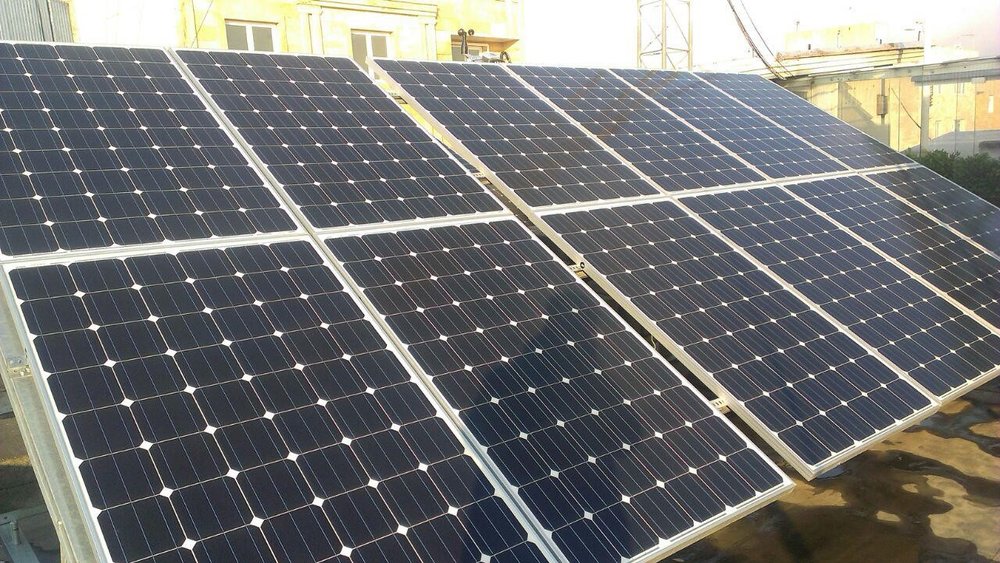Rooftop solar panels in Yazd to generate 5MW of electricity

TEHRAN — An Iranian cooperative has initiated pioneering efforts to set up 1,000 rooftop photovoltaic power stations, each capable of generating 5 kilowatts of electricity, in the central city of Yazd.
A rooftop photovoltaic power station, or rooftop PV system, is a photovoltaic system that has its electricity-generating solar panels mounted on the rooftop of a residential or commercial building or structure.
“As per the arrangement we are planning on mounting some 1,000 solar power plants on rooftops in the city of Yazd,” Seyyed Javad Hosseini Azabadi, Pishgaman cooperative CEO said, IRNA news agency reported.
Citizens can have their own rooftop PV system by paying some 150 million rials (nearly $3,750), Hosseini Azabadi suggested, adding, each plant is capable of generating some 5 kilowatts of electricity.
A land area of 50 to 60 meters would do for installing the plant; citizens who own a plant would acquire stocks valued at 60 million rials (nearly $1,500) and receive monthly income of 3.25 million rials (nearly $80).
In the first phase, some 1,000 plants are being installed in the city of Yazd by the end of the year (March 20, 2018) and so far 400 households have registered, Hosseini Azabadi pointed.
In the next phase, some 10,000 plants each capable of generating 5 kilowatts of electricity will be set up in the provinces of Yazd and Kerman within three years, he added.
“They would also receive annual dividend on their shares,” he highlighted.
The province of Yazd gets relatively adequate amounts of sunshine which paves the way for building solar plants; that is a great method to take advantage of natural and renewable resources of the area, he explained.
The CEO went on to say that using solar energy to generate electricity would lead to economic and social efficiency as well.
Given that 600 grams of carbon dioxide is produced per kilowatt-hour when generating electricity with fossil fuels the solar plants can be a great replacement which would cause no damages to the Earth.
The scheme is being implemented since the beginning of the second Iranian calendar month of Ordibehesht (April 21 to May 21), he said.
MQ/MG
Leave a Comment